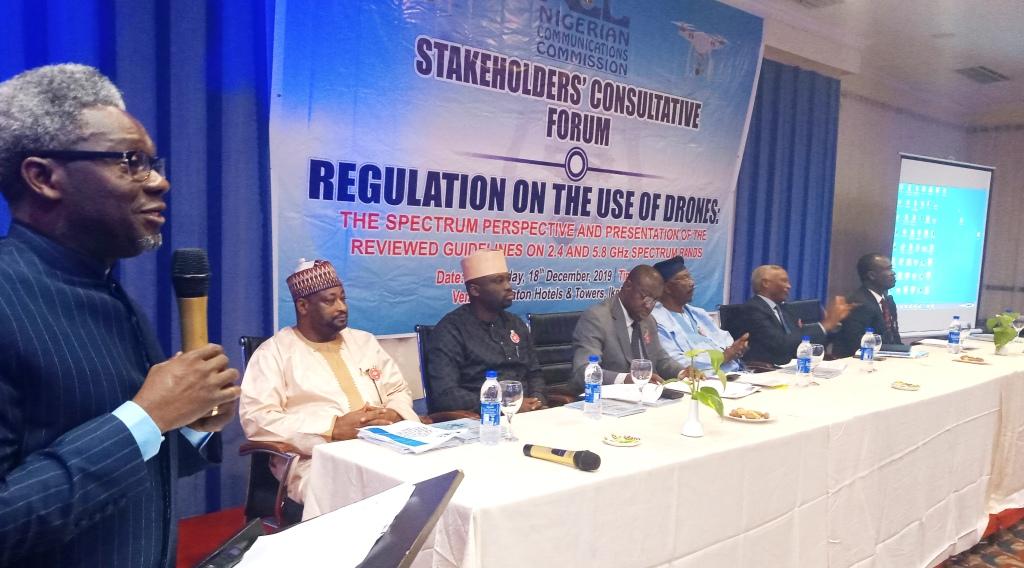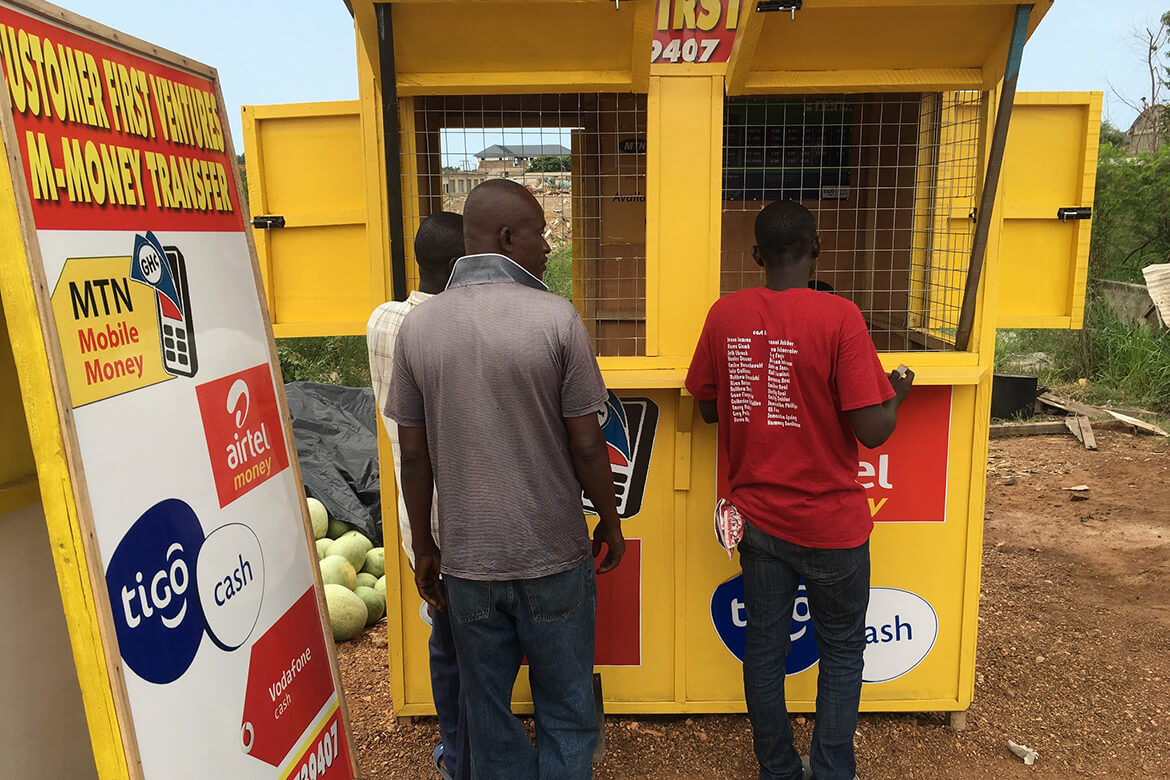On Planned Rural Connectivity with TVWS Technology
Further to the strategic implementation of its 8-Point Agenda, the Nigerian Communications Commission (NCC) has partnered with the National Broadcasting Commission (NBC) and other necessary industry stakeholders to brainstorm on how to develop a framework for leveraging television white spaces (TVWS), as technology platform to extend affordable broadband services to rural, unserved and under-served communities in the country.
TVWS is the unused broadcast spectrum which can be deployed in the telecommunications sector to provide cost-effective broadband services to people in the rural, underserved and unserved areas of the country towards achieving universal access and universal service in line with the country’s digital agenda. The collaboration with the NBC was in line with the fifth pillar of the NCC’s 8-Poing Agenda focusing on facilitating strategic collaboration and partnership with necessary government agencies and stakeholders to drive the development frontiers of the industry.
The initiative for the use of TVWS in Nigeria was mid-wifed by the Ministry of Communications and Digital Economy, following approval for the use of the TVWS technology by the National Frequency Management Council (NFMC). TVWS deployment is expected to further enable the NCC to facilitate its mandate to ensure universal access to digital services across the nooks and crannies of the country.
“Ensuring that all Nigerians are connected is our priority at the Commission. “We are continuously in a quest to achieving rural connectivity goal and this quest has led us, as a Commission, into embarking on several initiatives to actualise this pervasive connectivity objective in Nigeria,” said Austine Nwaulune, Director, Spectrum Administration, NCC said during a stakeholders’ forum on framework for the deployment of TVWS held earlier in 2019.
On Accelerating Broadband Infrastructure across 774 LGAs
Closely related to the Commission’s efforts in deepening broadband penetration is its development of Open Access Model (OAM) initiative, principally aimed at extending access to digital services to all the 774 local government areas (LGAs) through the licensing of Infrastructure Companies (InfraCos) across geo-political zones.
To date, six InfraCo licences had been issued by the Commission. They include Raeana Nigeria Limited for the South-South Zone; O’dua Infraco Resources Limited for South-West Zone; Fleek Networks Limited for North-West Zone; Brinks Integrated Solutions for North-East Zone; MainOne Limited for Lagos Zone and Zinox Technologies Limited for the South-East Zone. The seventh and last licensee for the North-Central Zone of the country is being processed by the Commission.
As Public-Private Partnership (PPP) initiative, the NCC is expected to provide a counterpart funding, in form of stimulus, to encourage investors of InfraCo to deploy fibre optic infrastructure across the country. Already, subsidy negotiations with the licensees had been concluded by the Commission and efforts are being tidied up by the telecoms regulator to secure Federal Government’s approval for the disbursement of the counterpart funding to the licensees. This, however, will be disbursed to the InfraCos upon attainment of certain milestones in their area of deployment.
During a visit by the United States Trade and Development Agency (USTDA) to the Commission earlier in 2019, Danbatta had said that, “NCC had concluded the process leading to the disbursement of subsidies to the six licensed InfraCos in line with the digital transformation agenda of the Federal Government. The subsidy will augment the InfraCos’ capital expenditure (CAPEX).”
On Spectrum Auctions and Related Initiatives
One aspect of the Commission’s regulatory activities which has added the needed fillip to its accomplishment with regards to broadband penetration is in the area of effective utilization of available spectrum. Apart from achieving and surpassing the 30 per cent broadband penetration, the NCC had recorded some broadband-driving successes, especially in the area of spectrum auctions. These include the auction of the six slots of 2×5 megahertz (MHz) in the 2.6 gigahertz (GHz) Band, re-planning of the 800 MHz band for Long Term Evolution (LTE), licensing of two slots of 10 MHz each in the 700 MHz band, as well as the opening up of the E-band spectrum 70/80 GHz band for both last-mile and backhaul services. Other regulatory instruments by the Commission in this regards include the Spectrum Trading Framework, which allows for transferability of spectrum licence from a dormant licensee to another operator that needs such spectrum which has been redundant for the deployment telecom services.
All these efforts are in keeping with the commitment of the Commission, as articulated by Danbatta early in 2015 that “NCC will develop and implement flexible, market-oriented spectrum regulatory policies that promote highly-efficient use of spectrum in ways that stimulate innovation, investment, and job creation and increased consumer benefits.”
Commitment to ICT Innovations in Telecoms Industry
In line with its commitment to promoting innovation to drive digital transformation, the NCC, in 2016, created its Research and Development (R&D) Department for the Commission in 2016, for the main purpose of synchronising the various ongoing research activities and other development projects being carried out by the Commission. This decision, which was in line with the provisions of the National Telecommunications Policy 2000 and the Nigerian National ICT Policy 2012, has helped the Commission to stimulate and sustain innovations in the Information and Communication Technology (ICT) industry.
Till date, the Commission had disbursed millions of Naira, in grants, to sponsor innovation-oriented research projects in tertiary institutions and other research institutes across the country. Further to this tradition of driving ICT innovations through funding relevant researches in tertiary institutions, the Commission, in May 2019, announced N40 million endowment funds for Bayero University, Kano (BUK) and the Federal University of Technology, Owerri (FUTO). The funds would be utilised by the institutions to drive for innovation, research and development in the digital space with an ongoing commitment to expand the list of benefiting institutions.
A month after, precisely in June 2019, the Commission, again, demonstrated its determination to facilitating research and innovation in the telecoms industry by presenting the sum of N65 million to eleven (11) universities in Nigeria to drive innovation, research and development. Through the funding, the benefitting tertiary institutions were expected “to deliver research results and prototypes that are implementable, commercially-viable and capable of engendering innovation in different sectors of the economy.”
Today, the Commission continues to support young innovators, through providing them with opportunity to showcase their tech innovations at global telecoms conferences such as the International Telecommunication Union (ITU) Telecoms World. Also, organising local competitions for technology innovators, on an annual basis, in order for them to competitively develop locally-relevant tech innovations and applications that can help grow the economy is parts of the NCC’s efforts in this regards.
The latest of such effort was the three-day Maiden Edition of the Innovation Competition/Exhibition Event hosted by the Commission at the Digital Bridge Institute Lagos Campus between from December 17, 2019 to December, 19, 2019, with the theme: “Promoting Innovation and Creativity in the Telecoms Sector”. The forum gathered some 25 shortlisted technological innovators to pitch their innovations before industry stakeholders for cash prizes provided by the Commission towards advancing their business ideas for full commercialization. After series and rounds of presentations, discussions as well as questions and answers sessions by the panel of judges and focusing on local content component of the innovators’ business plans, 10 best-in-class innovative ideas were shortlisted out of the 25 tech innovators from the six geopolitical zones of Nigeria.
Consequently, from the 10 shortlisted innovators, QMartins Fidelis – founder of Qatalog Automates emerged the best; WICRYPT came second while Phaheem Pharmaceuticals Limited came third. They won N3 million, N2 million and N1 million respectively.
While addressing the audience at the event, the EVC of NCC, said the initiative was “in line with Item 4 of the Commission’s 8-Point Agenda, which speaks to promote ICT innovation and investment opportunities in the telecoms industry through promotion of digital knowledge and skills that can positively impact various sectors of the economy.”









